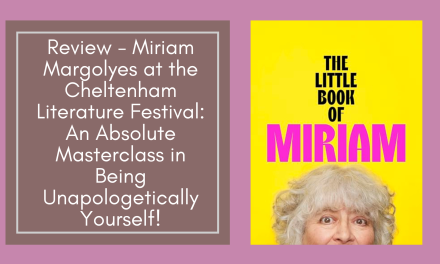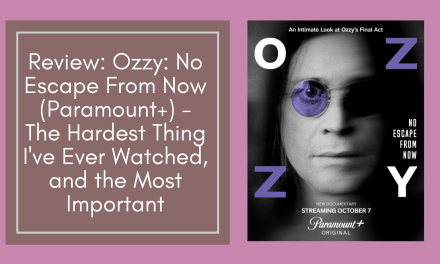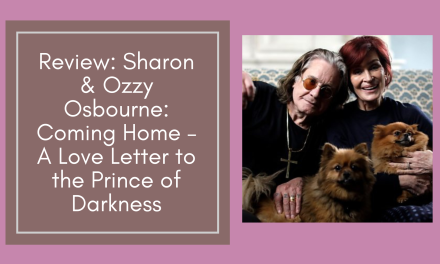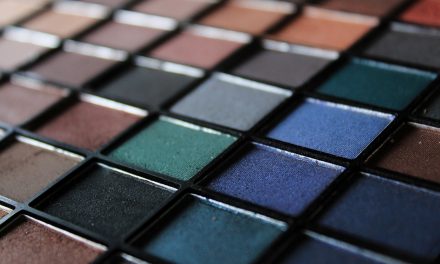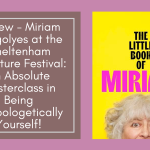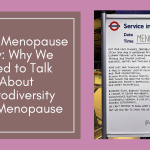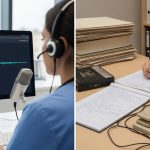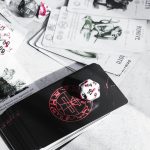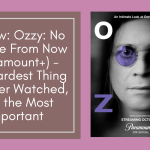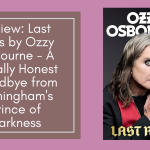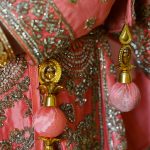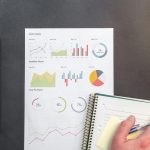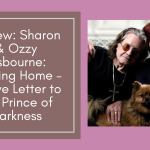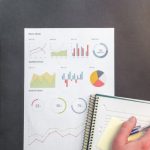In my last post where I talked about how I got diagnosed with autism in 2018 and with ADHD, dyspraxia and dyscalculia in 2023 I said that to understand why I am the way I am in the present, I needed to look back to my past. I will share some of the things from my childhood which should have been red flags to my being #OpenlyNeurodivergent, but were never picked up.
My Early Childhood Years
I was an only child, and I grew up in the company of adults, although I did have a handful of second cousins who I saw regularly. My Uncle, my Dad’s brother, was a carpenter and built my parents a large playpen which they set up in the lounge to put me in. My Mum said that even before I was a year old whenever the adverts came on if she had ITV on, I would immediately focus on those to the exclusion of everything else.
I can recall many of those adverts from the 1970’s in meticulous detail. “A finger of fudge is just enough to give your kids a treat”, “everyone’s a fruit and nutcase”, “naughty…but nice”, “oh its chips its chips, we hope its chips its chips”, and “do the shake and vac and put the freshness back”. If you lived in the UK in the 1970s and 1980s, I’m sure you will know all these jingles.
I loved reading, books and writing and having a pen and paper to write on made me very happy. I wasn’t really interested in toys and every week my Mum would buy me a book from the Ladybird “Read it Yourself” series, and I would pick one every night to read with her. When my Mum finished reading it to me, I would say “again”, and she would have to read the same book to me several times over.
My Mum was a huge fan of the rock band Queen. When my Dad was at work, she would play their albums, and I was hooked on them and all other kinds of rock and heavy metal music. Before I even got to school, I knew all the bands, singles, albums, the date they were released, the lyrics to all the songs, the names of the band members, tour dates – everything. Some of the bands I was crazy about aside from Queen included Status Quo, Electric Light Orchestra, The Eagles, Black Sabbath and Led Zeppelin.
I knew I was different even as a toddler. It is very difficult to explain, but it was a feeling that I didn’t belong and that I wasn’t meant to be on this earth. I didn’t understand this feeling, and even at that young age questions ran through my head of “who am I?” and “why am I here?” But I never got the answers to these questions, until recently.
My School Years
When I started school, I couldn’t relate to the other children at all. I had been allowed to play with some of the other children who lived in our street and of course I had few second cousins to play with, but even with them I felt like a big outsider looking in. I didn’t understand playtime, I didn’t understand social cues. I didn’t understand having to “take my turn.” All of this felt completely alien to me but I knew that if I was to have ANY chance of fitting in at all I should observe, learn and mimic what the other children were doing.
This was the start of my masking my true self and the way I was. All the way through my school years I lived for the end of the day right up until the day I left school when I was 16. I excelled in English and all subjects that involved words and writing such as History, Geography, Drama and General Studies, so I just got my head down and “got on with it” because I had to and “because this is the way it is.” The education system was completely broken for people like me who were neurodivergent, and at my school there was a “thick table.”
Please excuse the terminology, but in the 1970s and 1980’s that is exactly what it was called. It was the table where people like me who struggled in class to follow what the teachers were saying and who were considered to be “behind” were placed, and there was a huge stigma to being put on this table. The comedian Peter Kay talked about this in his stand up comedy show, and when I saw that sketch I knew that it was a common theme across the UK. It showed just how broken the education system in the UK was and still is, it is completely failing those of us who are neurodivergent.
Being on the “thick table” singled me out, made me visible, but not in a good way. The bullying, abuse and harassment I got from the moment I walked through the school gates was off the charts, and this was a recurring theme throughout my entire life in every area of my life. As I was different, I was seen as a “threat”, so the bullying, abuse and harassment I received was relentless.
The one thing I was excellent at and didn’t struggle with at school was English, and I loved reading and writing. I would read through numerous books in a week where my classmates would struggle to finish just one. Yet I was singled out and placed on the “thick table”, which to me didn’t make any sense at all. Conversely, I struggled with numbers and hated Maths. Put a load of numbers in front of me and ask me to make sense of them, you might as well tell me to fly to the moon. I chose to do Human Biology for my science GCSE option because it was the one that involved more writing and less numbers. I scraped a C grade for my GCSE Maths, and I haven’t touched the subject ever since.
I was once told off in class because I couldn’t stop singing the song “Under Your Thumb” by Godley and Creme. Every song or album I liked I had to listen to repeatedly. I couldn’t stop.
I hated being put into a “timed” or “controlled” environment and being told to complete a task in a set amount of time. Consequently, I simply “rushed” anything I had to do at school in this way. “All written work is rushed” wrote one teacher on my report card.
“Slow down, it is not a race,” my parents would say to me. I had to get those kinds of tasks that had to be done in a specific time over and done with as quickly as possible, otherwise I would panic and have internal meltdowns.
And the bullying, oh the bullying! This happened throughout my school years, and it was a recurring theme throughout my life. When I was little I put it down to the fact I was overweight as a child and had to wear glasses, but now I suspect that the other children could sense that I was somehow different. There is a line in the Disney film “Cool Runnings” which is the true story of the first Jamaican bobsled team where the team is getting bullied by the Swiss team. One of the team members says, “What’s their problem?” and another says, “We’re different. People are always afraid of what’s different.” It is so true.
To cope with the bullying, I would go straight to my room as soon as I got home from school and I would write and write and write. I wrote reams of poems, short stories and even full-length novels. I created characters and fantasy worlds that I wished I could be a part of instead of living the life I did have and thought of running away and escaping the life I was in that I hated. I went through tons of A4 pads of paper and I meticulously filed and stored all my pieces of writing in ring binders, all carefully ordered and indexed.
I also took solace in the fantasy world of American soap operas such as Dallas, Dynasty, Falcon Crest, and Knots Landing and would watch these for hours. I was also a huge sci-fi fan and loved Dr Who, Star Trek and Babylon 5. I dissected and analysed the character and plots and had to know everything there was to know about them.
I repeated a lot of what I said, which drove everyone around me mad, and I would say the same things over again. To this day, it is something my husband Russell absolutely hates me doing. I hated making eye contact with anyone, I struggled socially massively and although I did make one close friend when I was at junior school, she moved to Derby when her parents relocated before we started secondary school, and I lost touch with her until we reconnected on Facebook a few years ago.
I remember one day my class was taken into the main hall and made to watch a BBC film called “Threads”, which depicted a nuclear bomb going off over Sheffield and the aftermath of a nuclear war in the UK. I was transfixed when I saw this film, and so affected by it, that a strong interest in all things to do with nuclear war manifested itself in me. I can reel off all sorts of things about nuclear bombs, splitting the atom, fission, fusion and the exact rad dosages of radiation that a person needs to be exposed to that will cause radiation sickness and death. “Protect and Survive” was my bible, and I also have a rare copy of a book called “London After the Bomb: What A Nuclear Attack Really Means”. I have read this book from cover-to-cover hundreds of times.
By some miracle I managed to get through my GCSE’s, and I then went to college to undertake A-levels, and English was top of my subject list. Naively, I thought that once I left school the bullying, abuse and harassment that was aimed at me would stop. How wrong I was.
At first, being at college was like a breath of fresh air as I had much more flexibility and freedom to be my own person. But still the feeling that I was different was there, and I struggled to connect with the other students and my subject tutors. Then the bullying started again. I learnt best when left to my own devices, so I was often found in the college library on my own. I hated taking part in debates and tried to steer clear of anything that involved my having to speak or speak up. I wanted to make myself as invisible as possible so I wouldn’t get “picked on” in any way.
Starting work
I decided I wanted to be a journalist, but that meant having to move to London. Hard as it is to believe now, there was no email, internet, websites or social media. Also, at the time, going into journalism meant having to move to London, which was a place I absolutely hated, so I decided not to pursue this.
I then got my first job while at college as a till operator at my local Sainsburys supermarket, where I combined working with my A-level studies. I hated having to “clock in and out” and being in front of customers. I had to put on a big mask as talking to people, making eye contact and being pleasant to them didn’t come naturally to me.
Neurodiversity as a concept wasn’t even thought of in the workplace when I got my first job at Sainsbury’s, and I hated being a small cog in a large wheel, not making a difference and doing the same thing every shift I had there. There was no way I could have gone to the customer services manager and ask if adjustments could have been made for me, I would have been laughed at to kingdom come. You were expected to turn up, clock in, do your job to the best of your ability (or scan a certain number of items per minute in my case, and risk disciplinary action if I didn’t) and clock out. I hated that existence.
I felt like I was swimming against an endless tide, with waves that kept battering me and battering me with no end to them in sight. I was lost and trying to make sense of a world that I just didn’t understand, yet I still had to live in that world, despite knowing I didn’t fit into it.
The masks I created were always there, and I used them to I cover up how I really was inside. It became like a fine art, and I was the master of disguise. It wasn’t until I was finally diagnosed as autistic some 23 years later, and then subsequently with ADHD, dyspraxia and dyscalculia that I was able to let go of the masks, and everything finally made sense.
_____________________________________________________________________________
Do you have a personal experience, story or insights linked to neurodiversity which you would like to share? If so, please get in touch.

